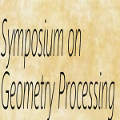This paper provides a definitive, unifying framework for the Symbol Grounding Problem (SGP) by reformulating it within Algorithmic Information Theory (AIT). We demonstrate that the grounding of meaning is a process fundamentally constrained by information-theoretic limits, thereby unifying the G\"odelian (self-reference) and No Free Lunch (statistical) perspectives. We model a symbolic system as a universal Turing machine and define grounding as an act of information compression. The argument proceeds in four stages. First, we prove that a purely symbolic system cannot ground almost all possible "worlds" (data strings), as they are algorithmically random and thus incompressible. Second, we show that any statically grounded system, specialized for compressing a specific world, is inherently incomplete because an adversarial, incompressible world relative to the system can always be constructed. Third, the "grounding act" of adapting to a new world is proven to be non-inferable, as it requires the input of new information (a shorter program) that cannot be deduced from the system's existing code. Finally, we use Chaitin's Incompleteness Theorem to prove that any algorithmic learning process is itself a finite system that cannot comprehend or model worlds whose complexity provably exceeds its own. This establishes that meaning is the open-ended process of a system perpetually attempting to overcome its own information-theoretic limitations.
翻译:暂无翻译





